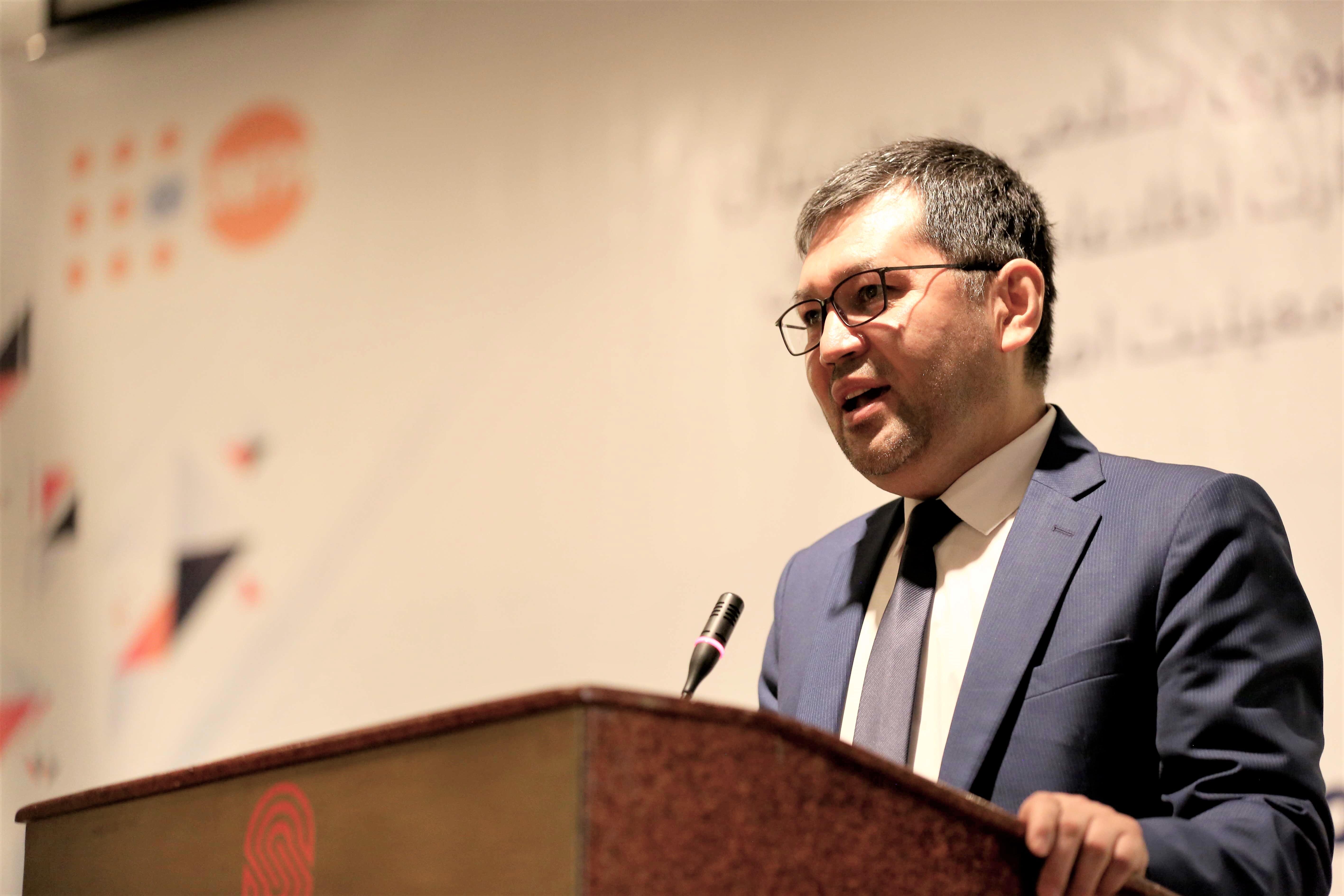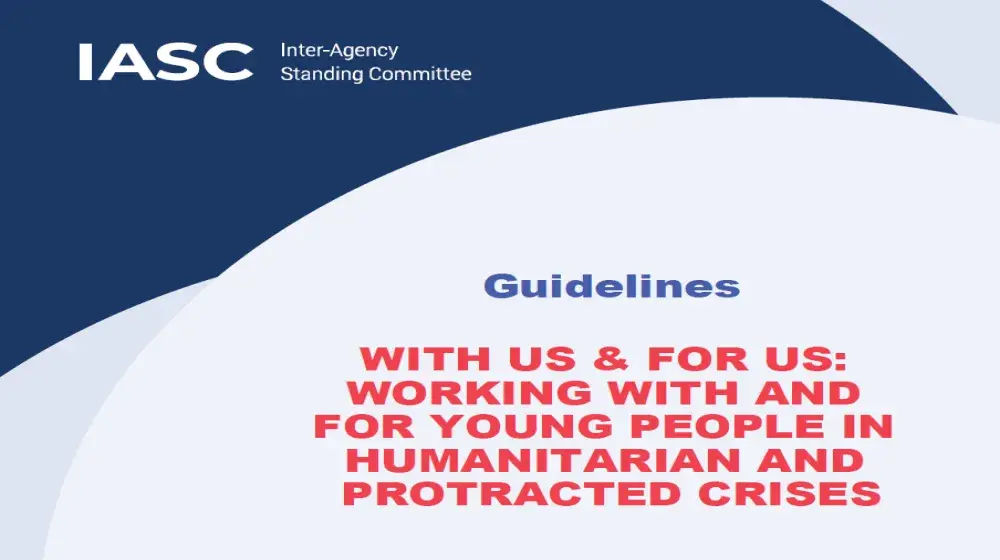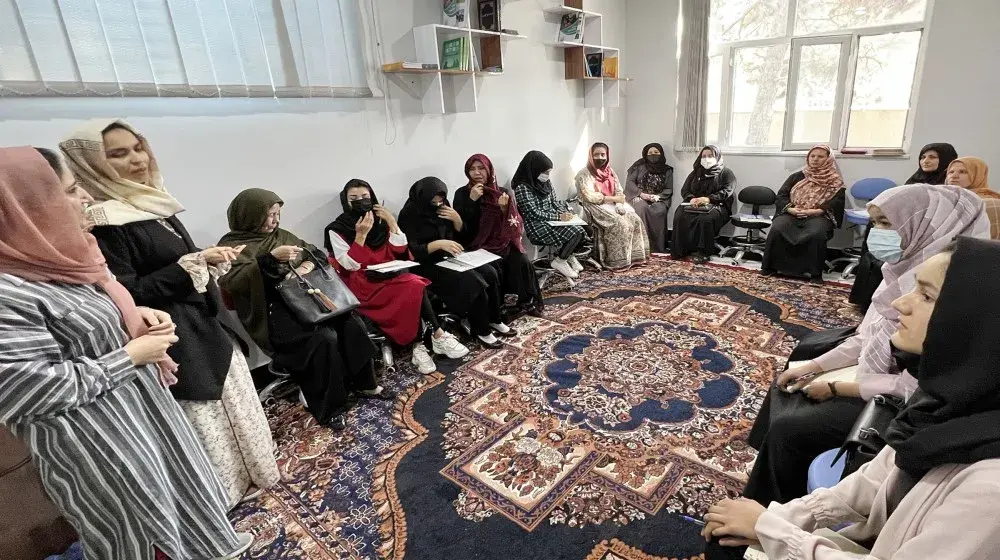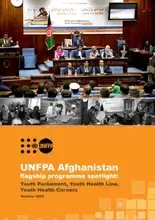Afghanistan’s youth reviewed and revised the National Youth Strategy in April 2021. The Deputy Ministry of Youth Affairs (DMOYA) Afghanistan and the United Nations Population Fund (UNFPA) conducted a two-day workshop in Kabul from 29-30 April 2021 where 140 youth and academia gathered to review and revise Afghanistan's national youth strategy.
The development of the existing National Youth Strategy was initiated in 2018 and was intended to cover the period 2018 – 2022. However, recently the DMOYA, in consultation with the Administrative Office of the President of Afghanistan, decided it was necessary to review the strategy to ensure its alignment with the current needs and priorities of Afghan youth and Afghanistan’s National Peace and Development Framework-II. UNFPA Afghanistan supported the initiative and sponsored a national workshop where young university professors and youth from all 34 provinces were in attendance to share their thoughts, opinions, and constructive feedback.
H.E. Tahir Zaheer, the Minister of Culture, Information, and Youth Affairs commended the workshop as a key opportunity for youth participation, where all are able to come together, negotiate, and discuss the current opportunities, needs, and how to address the challenges in order to pave the way for a better future of young people of Afghanistan. The Minister further expressed that Afghan youth are a central power for leading the future of the country and highlighted the importance of their participation and engagement in the social, political, and economic affairs of Afghanistan, “Afghan youth are the hope of and future of Afghanistan, with passion and hard work, youth can bring positive changes to society. The youth strategy is a roadmap of youth goals that can lead Afghanistan towards peace and development.”
In Afghanistan, 67% of the population are below the age of 25-year-old. Sizable youth populations are both an opportunity and a challenge. Young people in Afghanistan face significant challenges related to health, education, employment, and gender inequality. But by investing in the young generation, these key challenges can be addressed. Development can be accelerated when the majority of young people in the country are able to make significant contributions to economic, social, and political life in a way that lifts the country out of poverty, ensures greater stability, and promotes healthier societies.
The Deputy Minister of Youth Affairs Dr. Edris Alakozay emphasized the need to further facilitate the ways to increase youth participation in Afghanistan, “meaningful participation of young people in social, economic, environmental, and political decision-making processes is one of the values of a sustainable development society”, he said. He also added that the workshop is an excellent opportunity for all youth representatives from all over Afghanistan to come together to discuss their needs through the developing of a concrete policy through which to achieve what young people of Afghanistan need in the coming years. “The suggestions will be included in the revised strategy and we will ensure to implement it through national and international stakeholders”.
On behalf of the UNFPA Afghanistan, Dr. Khalid Sharifi, Assistant Representative of UNFPA Afghanistan emarked on the increasing percentage of youth population in Afghanistan and expressed that UNFPA is assisting the Government of Afghanistan to pave the ways for increasing of youth participation and engagements. He spoke to the interventions that UNFPA has initiated to increase youth participation and engagement in national political and social agendas of Afghanistan. He added that the UNFPA has supported the Youth Parliament which is a flagship example of engaging youth on national policies and in the decision-making processes and as youth came together to discuss their National Strategy. This is also an example of transparency and accountability to engage youth in the planning and designing of a future that they—and the country—deserve.
The UNFPA Afghanistan Youth Specialist, Dr. Noor Mohammad Murad, provided a comprehensive presentation to the workshop participant about the demographic dividend of Afghan youth. He further explained the importance of the Youth Strategy as well as the process that UNFPA and the Government of Afghanistan undertook in the development of the National Youth Strategy. He stressed the significance of the workshop as a key opportunity that youth and academia to address the needs of youth in terms of education, health, sports, employment, and participation, and this will provide young people with potential power to engage in the future leadership of the country.
During the two-day workshop, the youth divided in five groups to discuss the five focus areas of the youth national strategy including: Participation, Education, Health, Sports, and Employment. The groups presented their comments and revisions at the end of the workshop. The Deputy Minister committed that a technical team of his office and UNFPA will work on the comments and proposals received by all the workshop participants and ensure the comments are incorporated and addressed.
After final incorporation of the group comments into the existing strategy, the Deputy Ministry of Youth Affairs will submit the revised National Youth Strategy to the Office of H.E President of Afghanistan for endorsement and approval.
By: Zaeem Abdul Rahman





